
Friends,
When I left the president’s Cabinet in early 1997 after over four years as secretary of labor, I felt enormous relief. I couldn’t wait to be back home with my family.
But I soon suffered from a sudden decompression, analogous to what happens to deep-sea divers who come up too fast for air.
Call it the political bends.
When you’re a high government official who’s doing the job you should be doing, you’re under enormous pressure. In my case, pressure came from the White House, Democrats in Congress, and labor union leaders. Some also came from Republicans in Congress, big business lobbies, and health care providers. And from the Labor Department staff.
These were just the everyday pressures. When I wanted to do something I felt to be important that altered the status quo — implementing the Family and Medical Leave Act, raising the minimum wage, stopping sweatshops, protecting workers from ambient cigarette smoke in the workplace — I ran into much higher pressures, like hurricanes.
Making laws and regulations is all about competing pressures. Washington is a pressure cooker. Pushing back against any of these pressures is hard.
A typical day for me ran 14 hours. It started at 7 am and ended at 9 pm with a member of my staff handing me a three-ring binder stuffed with the next day’s schedule and briefings. Reading through enough of it to prepare myself for the following day took several more hours. Then to bed. Then up at the crack of dawn for 7 am meetings at the White House or with members of Congress or my staff. Or to catch a plane to Toledo or wherever.
I was lucky if I got home to be with my family for a small portion of the weekend.
It wasn’t just time pressure. There was the constant pressure to make the right decision. Even a failure to decide was in effect a decision. Sometimes millions of people’s jobs or wages or pensions were at stake. Sometimes their lives.
There was also the constant pressure to say the right thing and not put my foot in my mouth. The media were always playing “gotcha.” It was their job to be skeptical, my job not to feed their skepticism.
Once, when I foolishly responded to a question about what I expected the next day’s jobs report to show, the media assumed I had seen it — causing minor chaos on Wall Street.
Another time, when I was doing a media briefing on workplace safety, the 20-pound seal of the Department of Labor hanging just above my head fell off the wall, barely missing me. It made every evening newscast.
The first two months on the job, I could barely sleep.
After about a year, I got used to the pressure.
After two years, I was addicted to it. I needed the adrenaline rush. I depended on the surge in cortisol, the rough equivalent of five cups of coffee every morning and another five every afternoon.
So when the day finally came for me to go home, a part of me was exhausted and eager to decompress, and desperate to return to my family.
But another part of me, which I was unaware of at the time, was waiting to attack.
I should have known. I remembered a former member of Congress who for many years had been chair of a key House committee. Then he was redistricted and lost his seat. When he later visited me in my office at the labor department, he appeared a shadow of his former self — deflated, listless, lacking the confidence I had come to associate with him. His voice was more halting. He had lost his power. More importantly, he had lost himself. He was suffering the bends.
Subconsciously, I knew it would be difficult to leave, but I underestimated the difficulty.
After the initial elation of being free from the pressure, I lost my bearings. I felt disoriented. I didn’t know what to do with myself. There were days when I didn’t want to get out of bed, days when I could barely utter a sentence. There were times when I felt spent even though I hadn’t done a thing — because I hadn’t done a thing.
When you’re in a high-pressure job, you get so used to the pressure that you can barely live without it.
It’s one reason some officials never leave Washington after leaving government. Half of all retiring members of Congress become lobbyists, and a quarter go into public relations. That’s mostly because the pay is so good. But it’s also because staying in Washington allows them to kid themselves into believing they’re still in the action, still on the front lines.
They aren’t, and many of them are like Wile E. Coyote, who runs into midair until he looks down and discovers there’s nothing under him — and then falls into a canyon.
Like the former committee chairman who came to visit me.
Like me.
But not like Donald Trump. He’s not seeking reelection because he loves the pressures and responsibilities of being president. He’s not addicted to the needs of the American public. He’s running because he wants revenge. He’s addicted to his own pathological narcissism.
Eventually I got over the bends. Fortunately, my kids were in high school and appreciated having their dad back.
One of them was a cross-country runner. After missing his races for four years, I had my first chance to attend one.
I went to the spot where he and the other runners were to depart from.
It was a rainy day. They assembled at the starting point and then took off.
I’d forgotten (if I ever knew) how long cross-country races last.
While I waited for him and his competitors to return — it seemed hours — I stood silently in the rain, holding an umbrella.
One of the few other parents who had braved the rain walked over.
“So how does it feel to be back home again?” he asked, with a grin.
“Wonderful!” I lied.
“Glad to be out of Washington?”
“You bet!”
“What’s the best thing about being home?”
“For one thing, I can be here, at this cross-country race!”
At which point the wind picked up, the rain intensified, and my umbrella went into reverse.
He laughed. I joined him in the laughter. We both knew I had told a whopper.



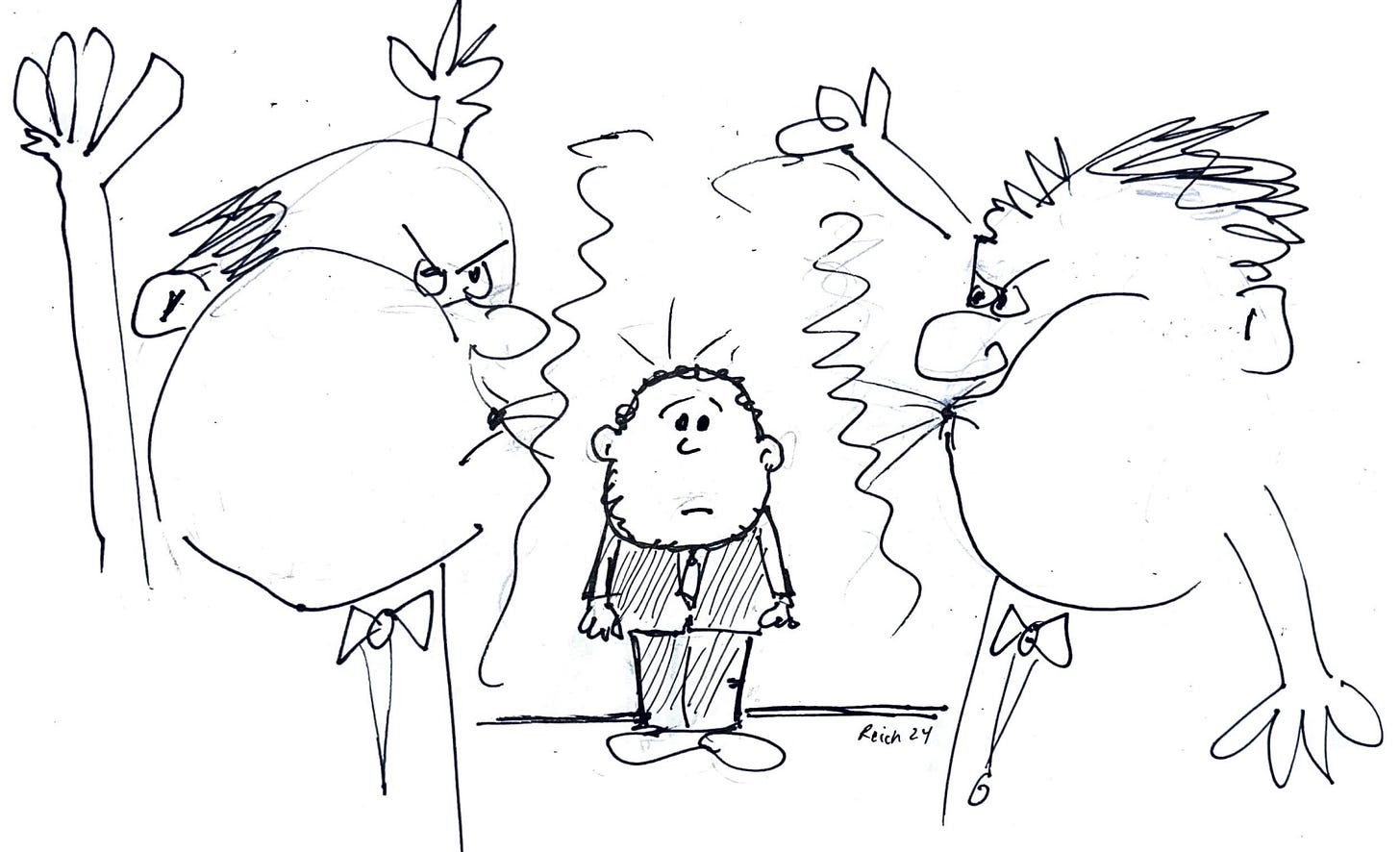
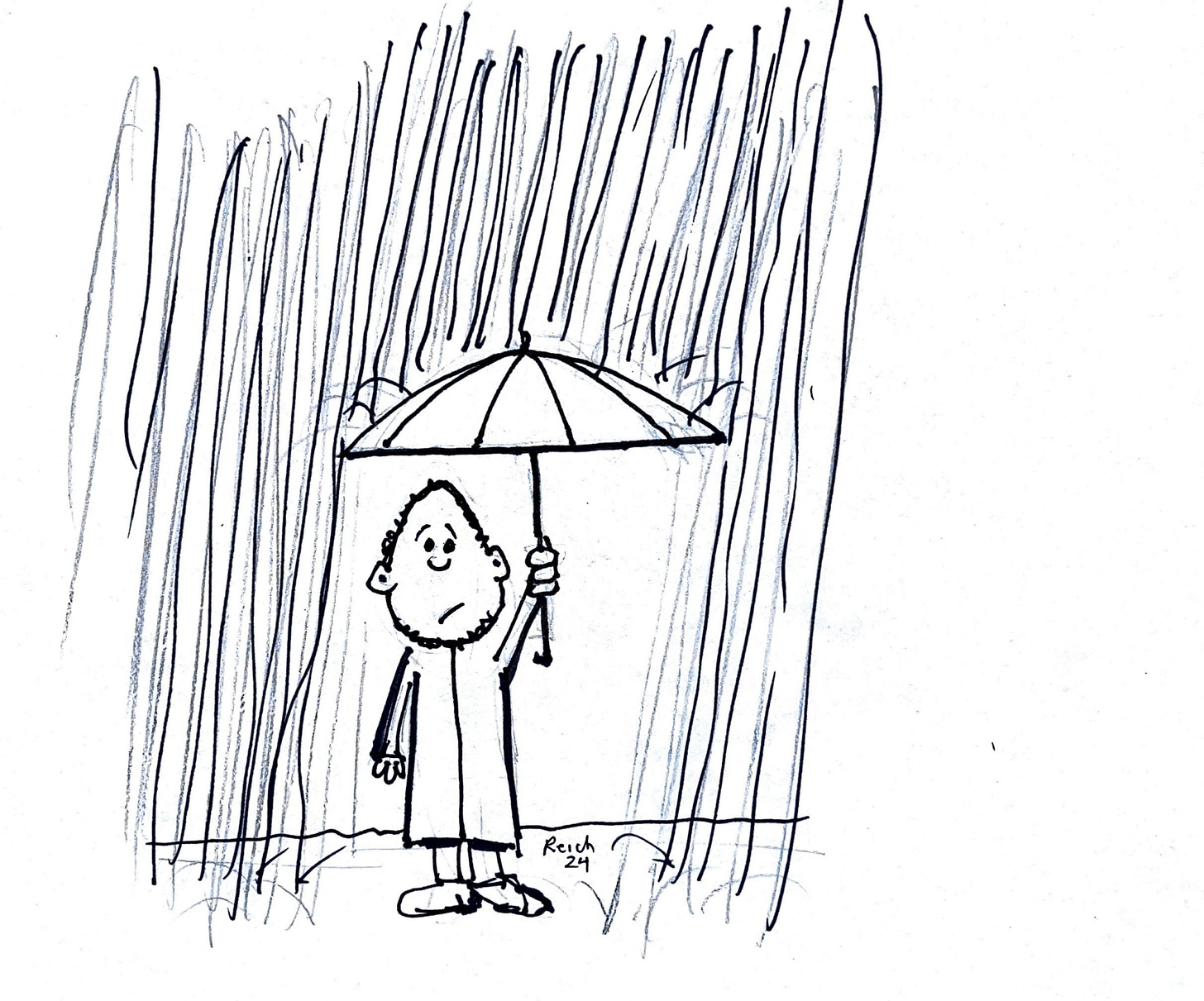





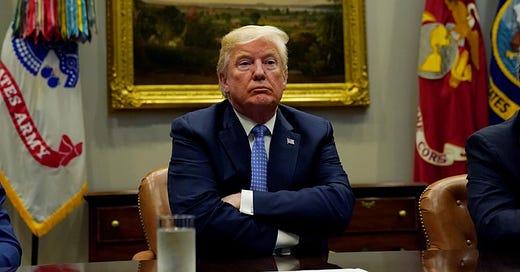

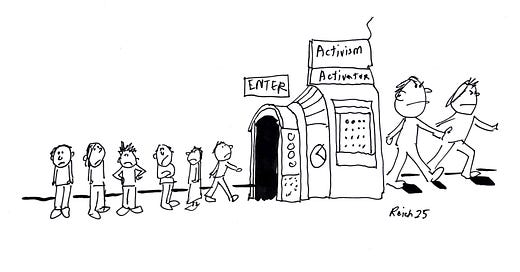

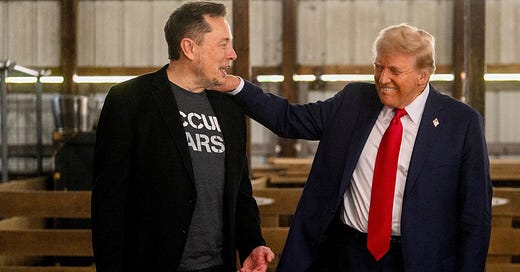

revenge is just his amuse bouche. his main course is power; power to indulge in a bottomless grift, power to exercise his sadistic appetite to instill fear and to insult and to intimidate and to mock what others value; along with his infantile need to sit at the ” big boys table” with Vlad and Xi and Kim.
Today’s smile and small laugh. Thank you.